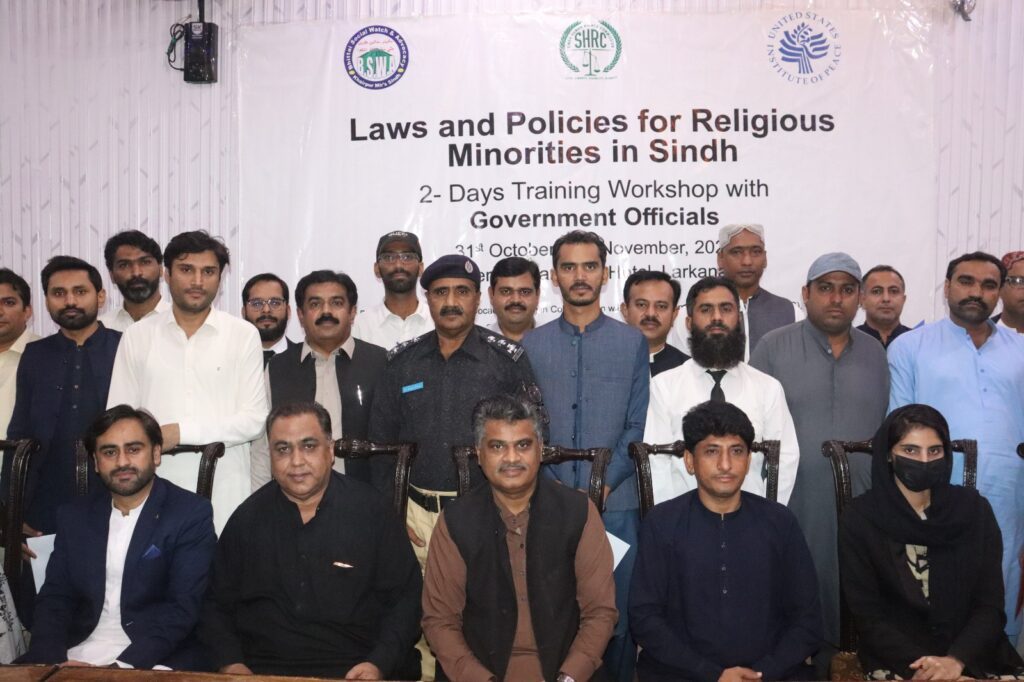
By Imtiaz Hussain
SUKKUR: The two-day training workshop titled “Laws and Policies for Religious Minorities in Sindh” concluded in Larkana, aimed at empowering government officials to uphold the rights of religious minorities in the region. Organized by Bhittai Social Watch & Advocacy (BSWA) in collaboration with the Sindh Human Rights Commission (SHRC) and the United States Institute of Peace (USIP), the workshop focused on enhancing the capacity of officials to better address the needs of minority communities.
Bringing together representatives from various government departments, including Human Rights, Local Government, Social Welfare, Women Development, Minority Affairs, and Empowerment of Persons with Disabilities, as well as police officials, the workshop provided an extensive overview of the legal frameworks protecting minority rights in Pakistan. Through interactive sessions, participants explored critical legal protections, human rights mechanisms, and enforcement strategies essential for promoting equitable treatment of minority communities.
Iqbal Ahmed Detho, Chairperson of the SHRC, led a session that focused on the Sindh Hindu Marriage Act of 2016 (Amended 2018) and other crucial legal protections, discussing the practical challenges minorities face in accessing their rights. He highlighted the significance of marriage registration as a pathway to securing marital and divorce rights, particularly for women from minority communities. Detho reiterated that Pakistan’s Constitution guarantees the right to practice, profess, and propagate one’s religion, as enshrined in Articles 20 and 21, a commitment further upheld by the Supreme Court’s landmark 2014 judgment.



